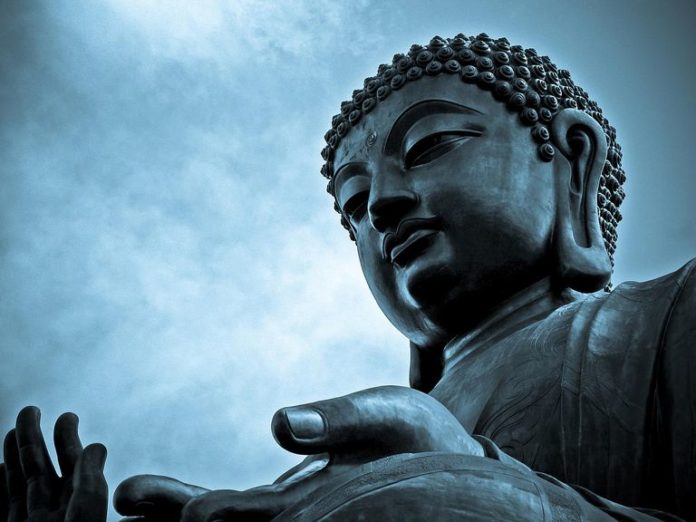Who is Gautama Buddha ?
# Gautama Buddha was born on c. 563/480 and left his body to this earth on c. 483/400 BCE.
# He is also known as Siddhārtha Gautama, Shakyamuni Buddha or simply the Buddha, after the title of Buddha, was an ascetic (śramaṇa) and sage, on whose teachings Buddhism was founded.
# He is believed to have lived and taught mostly in the eastern part of ancient India sometime between the 6th and 4th centuries BCE.
# Gautama taught a Middle Way between sensual indulgence and the severe asceticism found in the śramaṇa movement common in his region.
# He later taught throughout other regions of eastern India such as Magadha and Kosala.
# Gautama is the primary figure in Buddhism.
# He is recognized by Buddhists as an enlightened teacher who attained full Buddhahood and shared his insights to help sentient beings end rebirth and suffering.
# Accounts of his life, discourses and monastic rules are believed by Buddhists to have been summarized after his death and memorized by his followers.
# Various collections of teachings attributed to him were passed down by oral tradition and first committed to writing about 400 years later.
How old was Lord Buddha when he died?
Gautama Buddha was born on c. 563/480 and left his body to this earth on c. 483/400 BCE.
Was Buddha a vegetarian?
We don’t know. And like many religions, there is no consensus.
The Theravada school believes he ate whatever came his way as alms. Although there is no reference of him eating meat, according to Jivaka sutra he said, “Meat should not be eaten under three circumstances; when it is seen or heard or suspected that a living being has been purposely killed for the eater“. However, eating of humans, elephants, horses, dogs, snakes, lions, tigers, leopards, bears and hyenas was prohibited.
The Mahayana school believes he did not eat meat and he strongly advocated vegetarianism. According to Nirvana sutra, he said, “Eating of meat extinguishes the seed of great compassion.”
The cause of Buddha’s death could have given some clue, but even that isn’t agreed upon. He became ill after eating a meal at a blacksmith’s house. The meal could be pork or mushrooms. And he was in his eighties. For the case of non vegetarian alms, it is argued that the Laypeople (non monks) revered Buddha and his followers, and would not give meat as alms since Buddha did not like killing of animals.
So based on the common teachings of the Buddhist schools, we can only conclude that: He didn’t kill or let an animal be killed specifically for him to eat, gluttony was prohibited and humans, elephants, horses, dogs, snakes, lions, tigers, leopards, bears and hyenas were not eaten.
Anyways, before dying, lying under the Shala trees, Buddha asked the people if they had any questions. He asked three times, and they remained silent. He said-
“Everything that has been created is subject to death and decay.
Everything is transitory. Work out you own salvation with diligence”





